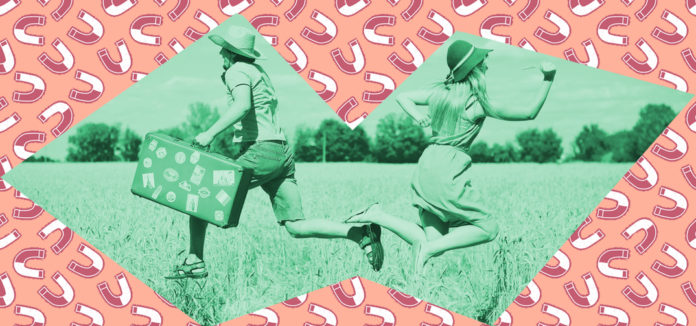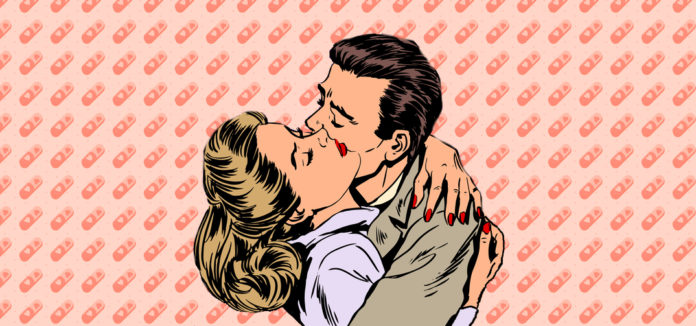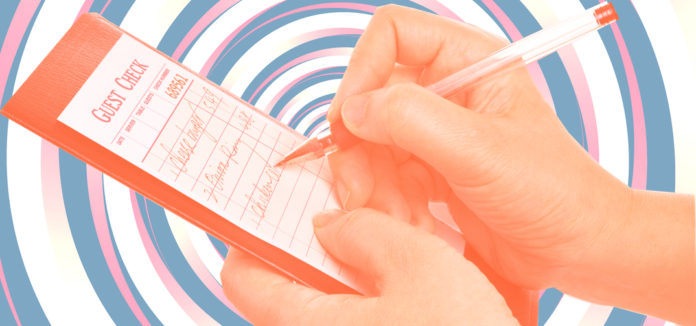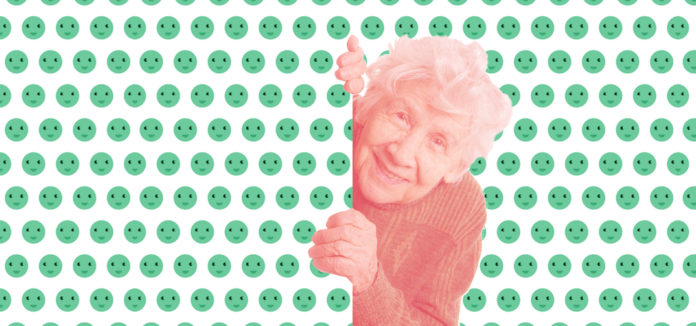A trailblazer of hope.
Do Opposites Attract?
In subways and movie theaters, on the bus and in cafeterias, we gravitate towards people who look like us.
Recent studies explore this tendency. In a pool of over two thousand students, people wearing glasses consistently sat next to other people wearing glasses, people with dark hair sat next to others with dark hair, long-haired people sat next to other long-haired people. This behavior was independent of other factors like sex and race.
In another study, subjects looked at pictures of people with different features. Participants were asked how close they would sit next to each person in the photos. As you might predict, participants said they would sit closer to people they resembled. Interestingly, they also expected these people to share similar attitudes, to be accepting of them, and felt it was more likely they would be friends.
This “homophily” — the resemblance between people who associate with one another — is powerful. This seemingly harmless way of organizing ourselves has serious implications. As the researchers describe:
…segregation may occur, which can result in myriad prejudices and misunderstandings.
The next time you get on the bus, take a moment to notice who you sit next to. Does that person look like you?
I wish you all the best,
Dr. Samantha Boardman
Daphne Oz
Co-host of the Chew, best-selling author and overall domestic goddess. Her new cookbook, The Happy Cook, redefines Happy Meal!
What’s your motto?
Live in love, not fear.
What’s on your nightstand?
I just cleaned up, so we’re down to last week’s T Magazine and The Complete Sleep Guide for Contented Babies and Toddlers. A candle and matches. A photo of my hubby and kids. An orchid. A GIANT jug of water, I am always thirsty. Aromatherapy diffuser and eucalyptus essential oil (I change it up regularly)…and my cell phone/alarm clock.
What gives you goose bumps?
Great food/great food memories. Serendipity/fate. True love.
What is your bad day backup plan?
A great meal, a 30-minute Chinese acupressure massage, or a pedicure.
What are you grateful for?
My family!
How do you define success?
Happy kids. A partner with whom you want to share everything. A day when you laughed until your sides hurt. Loving what you do.
Best advice you’ve ever received?
Work hard and have fun.
Best advice you’ve ever given?
Run towards the fear (and then show me how to do it)! It really worked.
What are you working on now that you are excited about?
Book tour for my new book, The Happy Cook!!
How do you press pause?
I listen to podcasts or books on tape whenever I commute or just need to zone out for a second. I love being read to.
What did your 8-year-old self love doing?
Riding horses and pretending to be Pocahontas in the woods near my grandparents’ farm. Cooking with my mom. (I still love these things.)
If you could have one magic power what would it be?
Teleportation. I am always late.
What makes you forget to eat?
Umm….??? Adventuring. But all the best adventures end with a great meal.
What 3 things would you grab in a fire?
The people are all safe, so photo albums, jewelry, and a painting my grandfather made for me.
What is the hardest thing you’ve ever done – your greatest challenge?
Trying to raise happy, healthy, good kids. I don’t know if it’s the hardest thing or if I just care about it more than anything else.
Favorite word? Why?
YES! It unleashes all the possibilities.
Favorite work of art? Why?
I love Hunt Slonem and Alex Katz. Their works are vivid, alive, and totally specific. I’ve loved John William Waterhouse’s A Mermaid since I was little – my mother had a reproduction hanging in her bathroom, and I always thought it must be a painting of her.
Favorite book? Why?
Hemingway’s The Garden of Eden. It’s not one of his well-known works, but I love his prose here in particular. I love all the Harry Potter books. I just started Joseph Campbell’s The Hero With a Thousand Faces, and it is great.
To learn more about Daphne Oz, visit her website, www.DaphneOz.com, check out her book, The Happy Cook: 125 Recipes for Eating Every Day Like It’s the Weekend, and follow her at:
Emotional Viagra
If you want to relight the fire in your relationship, start outside of the bedroom.
At the beginning of a relationship, couples cannot keep their hands off of each other. Romance and sexual desire take center stage. Over the long haul, however, many couples fail to sustain that initial first blush of passion. The thinking goes that desire diminishes as familiarity and intimacy set in. This is known as the Intimacy-Desire paradox. The paradox is predicated on the belief that desire is driven by uncertainty and novelty. The more emotionally connected people are, the less desire they feel for one another.
The good news is that this isn’t necessarily true.
A recent study sheds new light on the science of desire and simultaneously calls into question the Intimacy-Desire paradox. The research shows sexual desire actually thrives on rising intimacy. The key to increasing intimacy is being responsive to one’s partner outside the bedroom and making them feel special. Think of it as emotional Viagra. According to the study’s lead author, Gurit Birnbaum:
Responsive partners are willing to invest resources in the relationship and show understanding at a deep level. They make the relationship feel special — that their relationship is unique — which is what most people seek from their romantic relationships.
Responsiveness entails showing the other person that they are genuinely understood, valued and cared about. Essentially, it’s about being nice to each other every day. It’s consistently letting them know that you think they hung the moon. In Birnbaum’s words:
Sexual desire thrives on increasing intimacy, and being responsive is one of the best ways to instill this elusive sensation over time; better than any pyrotechnic sex.
Of note, not all intimacy is created equal. Asking how someone’s day was (and asking follow-up questions) will lead to fueled passions. Brushing your teeth together, leaving the bathroom door open, clipping your toenails in front your partner…this will not fan the fires of desire.
So next time you want to heat things up in the bedroom: Be nice. And close the bathroom door!
I wish you all the best,
Dr. Samantha Boardman
Out to Dinner: The Art of the Order
Ordering dinner at a restaurant seems like a relatively straightforward process. You look over the menu, listen to the waiter pitch specials and make a decision. You order.
Not so fast. Research in psychology reveals that what we order has little to do with what we feel like eating or how hungry we are. There are a number of factors influencing us.
1. The menu
Unbeknownst to most customers, where items are placed on a menu makes a difference. As renowned psychologist and food expert Paul Rozin’s research demonstrates, dishes placed at the top or the bottom of the menu of their category are up to twice as popular as those placed in the center of the list.
Text also matters and descriptive menu labels have been shown to boost sales, too. For instance, “cooked in our wood-burning oven” is more appealing than “fried” or “roasted.” Descriptions that trigger happy memories are especially popular: “Grandma’s home-baked potatoes” sounds so much better than “baked potatoes.”
2. The first order influences the rest
According to Tom Rath, if the first person ordering chooses a healthy option it puts subconscious pressure on everyone else to follow suit. However, if the first person chooses the fried chicken, it subtly encourages others to give in to temptation. This behavior facilitates what Rath describes as the “It’s not as bad as what she ordered mentality,” justifying less-than-healthy choices.
3. The more people you dine with, the more food you consume
The presence of other people influences not only what is eaten but also how much is eaten. Studies show that eating with friends often leads to longer meals where more food is consumed. Observing the eating behavior of someone else, such as a role model, a parent or a friend, can subconsciously influence your choices. For example, if your boss offers you a cookie, odds are you will take one. If your friend asks for the dessert menu and wants to order the cheesecake, you will probably order something too, or at the very least decide to split something.
4. Family style doesn’t help, either
As Rath’s research demonstrates, when extra food is readily available and within reach, people are more likely to consume more.
My advice: Pay attention. Be mindful when ordering and eating. Before you get to the restaurant, think about what you want to eat and stick to the plan. Next time you feel the overwhelming urge to order the steak and French fries, be sure you really want it.
I wish you all the best,
Dr. Samantha Boardman
Grin as You Gray
Few relish the thought of getting older. What is there to look forward to? Everything we hear about it is accompanied by the word “decline”—in energy, fitness, memory, appearance… and on and on and on. It’s a slippery slope that seems to begin with a gray hair and ends, well, you know where.
I wish you all the best,
Dr. Samantha Boardman







